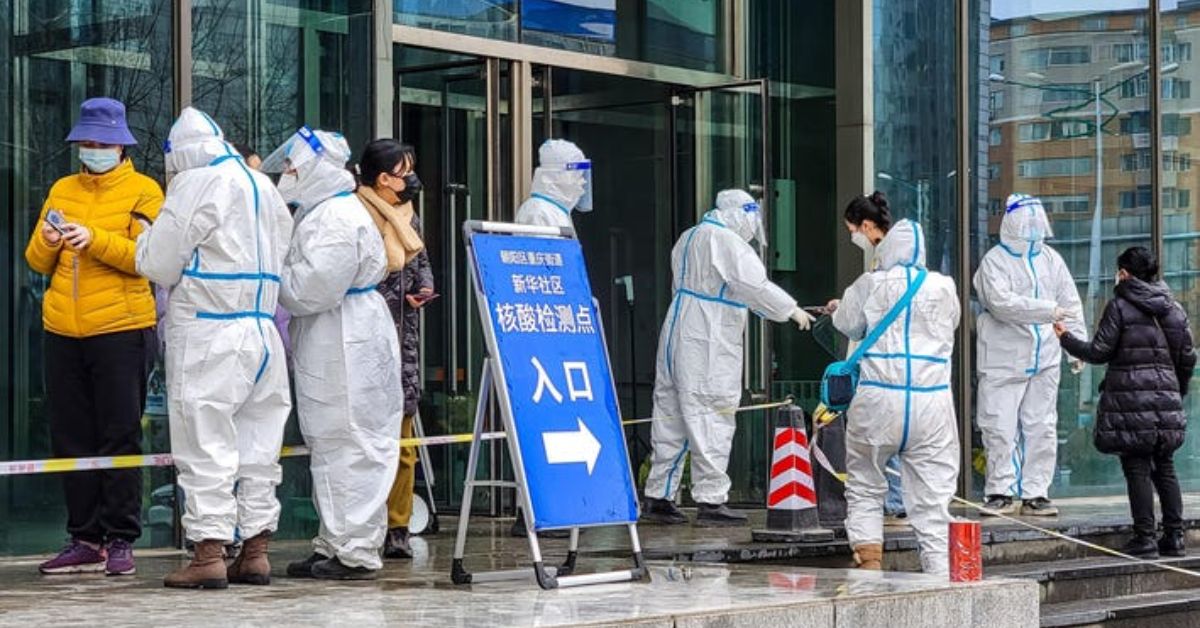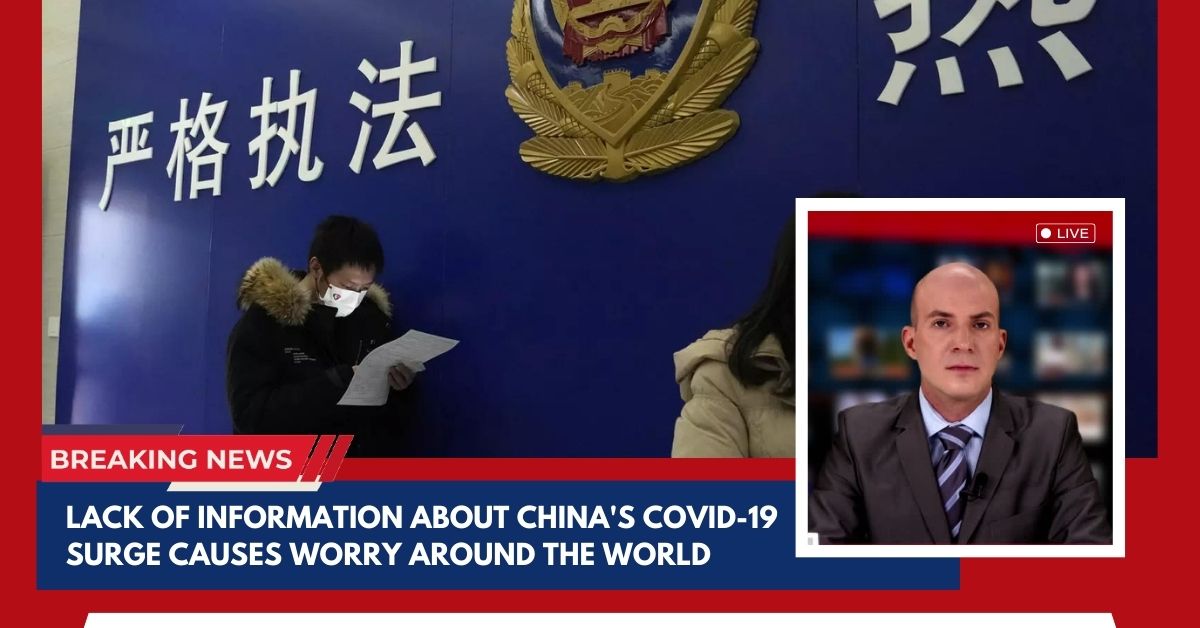The global community is worried that new strains of the explosive disease could emerge during China’s ongoing outbreak and that the Chinese government might not be able to inform the rest of the world quickly enough. As a result, several countries have taken steps to require COVID-19 testing for passengers arriving from China.
To this day, there have been no reports of new strains of the virus, but China has been accused of withholding information about it since it was discovered in the country toward the end of 2019. There is a concern that it may not share data on any evidence of developing strains that could spark fresh outbreaks in other locations.
The United States of America, Japan, India, South Korea, Taiwan, and Italy have all indicated that they would compel travel from China to undergo testing. The United States of America cited both the increase in the number of infections as well as what it said was a lack of information, particularly genomic sequencing of the virus strains that are prevalent in the country. Authorities in both Taiwan and Japan have voiced very similar concerns.
The chief of Taiwan’s epidemic command center, Wang Pi-Sheng, was recently interviewed by the Associated Press. He stated that “the pandemic situation in China is not transparent.” We have a fundamental understanding of the information it contains, and we know that it’s not very reliable.
On January 1, the island will begin evaluating everyone traveling from China in preparation for the return of some 30,000 Taiwanese for the Lunar New Year vacation later this month. The newly implemented regulations in Japan, which will restrict flights from mainland China, Hong Kong, and Macao to specific airports as of this coming Friday, are already making it difficult to make Christmas vacation plans.
Wang Wenbin, a spokesperson for the Chinese Ministry of Foreign Affairs, said on Thursday that any actions taken should treat individuals from all nations equitably. He pointed out that many countries have not modified their policy regarding tourists from China.
The coronavirus can potentially undergo mutation with each new infection, and its prevalence quickly increases throughout China. Although scientists are unable to state for certain that this indicates that the surge will cause a new mutant to be released into the world, they are concerned that this may occur.
Officials in charge of China’s public health have stated that the current outbreak is being caused by versions of the omicron variant that have also been found in other parts of the world. As a result, a surveillance system has been established to identify any potentially problematic new virus variants. On Thursday, Wu Zunyou, the top epidemiologist at China’s Center for Disease Control, stated that China has always provided timely reporting of the virus strains it has discovered.
He stated, “We do not keep anything a secret.” Every bit of labor is made available to everyone. According to the health minister of Italy, sequencing suggests that the variations found in travelers traveling from China are already in circulation in Europe. This information was provided to the Senate. Orazio Schillaci characterized this information as “the most crucial and heartening news.”
This is consistent with the position taken by the executive branch of the European Union. Thursday, the European Union decided not to follow the lead of one of its members, Italy, and immediately began mandating tests for visitors from China. Instead, the EU agreed to evaluate the issue first.
In a broader sense, the Director-General of the World Health Organization, Tedros Adhanom Ghebreyesus, has stated that the organization requires additional information on the severity of the outbreak in China, specifically on hospital and intensive care unit admissions, “in order to make a comprehensive risk assessment of the situation on the ground.”
At the beginning of this month, China relaxed many of the stringent pandemic restrictions that it had in place. This made it possible for the virus to rapidly spread across a country that had seen relatively few cases of the disease since the original devastating outbreak in Wuhan.
As a result of the proliferation of infections, there is a lack of cold medicine, long queues at fever clinics, and emergency facilities that are at capacity are turning patients away. The number of people choosing to have their bodies cremated has increased by several orders of magnitude, prompting funeral houses in one area to ask families to delay funeral rituals until the following month.
The Chinese state media have not widely reported on the repercussions of the spike, and officials from the Chinese government have blamed the Western media for exaggerating the crisis.
According to Miles Yu, director of the China Center at the Hudson Institute, a conservative think tank in Washington, these global concerns, which are tinged with anger, are a direct result of the ruling Communist Party’s sudden exit from some of the world’s most stringent anti-virus policies. In other words, the Chinese government has abandoned some of the world’s most strict anti-virus policies.

“You can’t undertake the madness of ‘zero-COVID’ lockdowns for such a long period… and then suddenly unleash a multiplicity of the infected from a caged China to the world,” Yu stated in an email, referring to the potential for significant outbreaks in other countries.
An infectious disease specialist at the Johns Hopkins Bloomberg School of Public Health named Dr. David Dowdy speculated that the action taken by the United States might have less to do with preventing a new strain from entering the country and more to do with increasing pressure on China to share more information.
There have been previous allegations that China has covered up the viral issue in the country. According to the findings of an investigation conducted by the Associated Press (AP), the government waited more than a week after decoding the virus to provide genetic information on the virus, which frustrated WHO officials.
Additionally, the government maintained strict control over the transmission of Chinese research on the virus, which hindered collaboration with scientists from other countries.
The investigation into the historical background of the virus has also been thwarted. In a report published this year, an expert group affiliated with the WHO stated that “important pieces of data” were lacking on how the epidemic started and demanded a more in-depth investigation.
The information was reported by Wu from Taipei in Taiwan. Geir Moulson in Berlin, Colleen Barry in Milan, Carla K. Johnson in Seattle, and Kanis Leung in Hong Kong were some of the Associated Press journalists who contributed to this report, along with Liu Zheng, a video producer based in Beijing.
Please share your opinions on this story in the space provided below. And remember to check back with us here at the website Journalistpr.com. for all the most recent news updates.

Leave a Reply